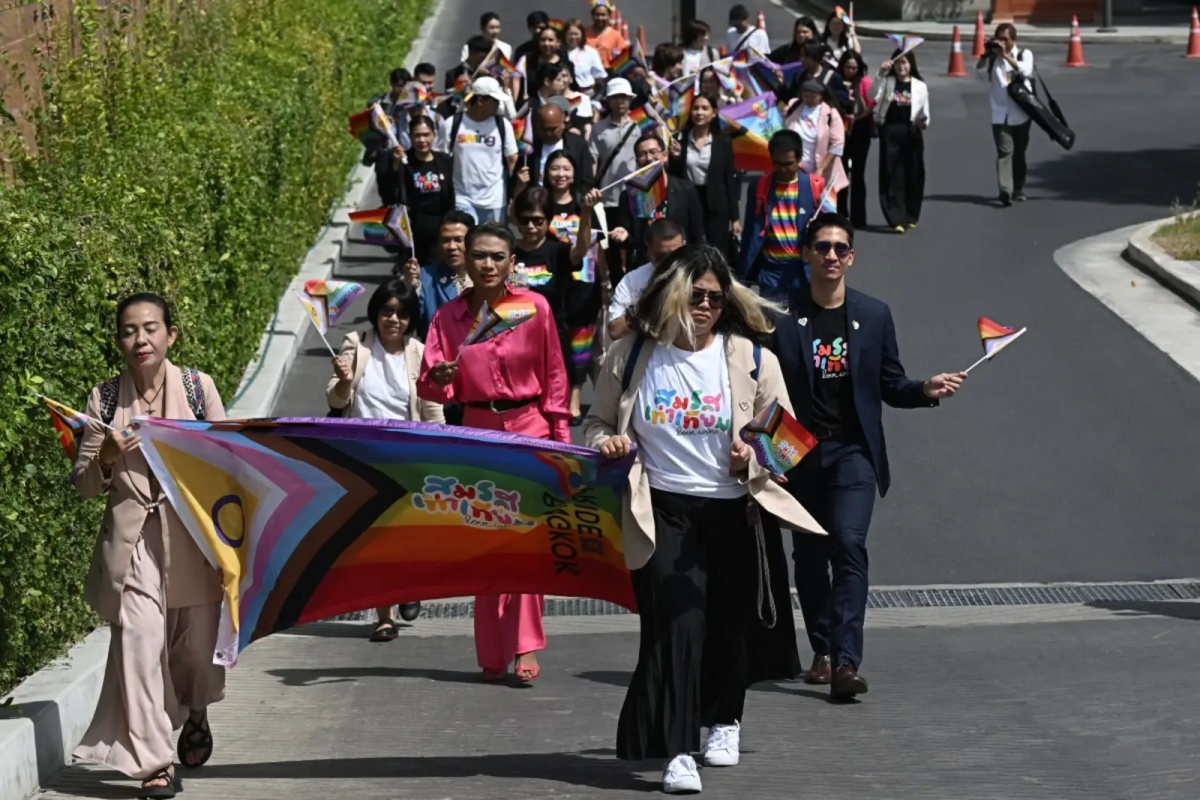On January 23, 2025, Thailand became the first country in Southeast Asia to legalize same-sex marriage.
This marks a significant milestone for LGBTQ+ rights in the region, providing legal recognition and protection that has long been denied.
Thailand has long been known for its relatively open and accepting attitudes toward LGBTQ+ individuals in comparison to many other Asian countries. Historically, Thailand’s Buddhist-majority society has been relatively tolerant of gender diversity. Thai folklore and religious traditions acknowledge non-binary identities, and “kathowey” (a term often used to describe transgender women or effeminate men) has been recognized in Thai culture for centuries.
Katie Martin ‘25, a leader of the Gender and Sexuality Alliance (GSA) at Lake Forest Academy, reflected on the significance of this moment.
“It’s incredible to see Thailand taking this step forward. Many countries in Asia still lack LGBTQ+ protections, so this is a beacon of hope,” she said. “This shows that progress is possible, even in regions where legal recognition has been slow.”
The enactment of the Marriage Equality Act grants same-sex couples the same legal, financial, and medical rights as heterosexual couples, including inheritance rights, tax benefits, and medical decision-making power.
The law amends the Civil and Commercial Code by replacing terms such as “man and woman” and “husband and wife” with “individuals” and “marriage partners,” ensuring inclusivity. On the first day of legalization, 1,832 same-sex couples registered their marriages nationwide, with over 1,000 participating in district offices and 185 at a large celebration in a Bangkok shopping mall.
Legalization is just one part of the fight; we need continued advocacy for full equality.
This historic change is the culmination of a decades-long campaign by activists in Thailand.
A student from Thailand, who prefers to remain anonymous, shared their thoughts. “I never thought I would see this happen so soon in my country,” they said. “This is a huge moment for our community, and I hope other Asian countries will follow.”
Despite the victory, activists stress that more work is needed. Discrimination, social stigma, and lack of protection for transgender individuals remain a significant issue.
Martin emphasized that while this is a step forward, it must be followed by further action. “Legalization is just one part of the fight,” she said. “We need continued advocacy for full equality.”
Thailand’s decision will hopefully influence neighboring countries to consider similar reforms, setting a precedent for broader LGBTQ+ rights in Asia. As celebrations continue, the movement for equality continues.






































